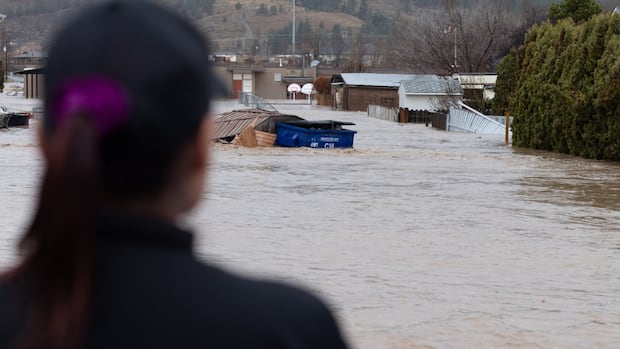Montreal has been faced with record-breaking heat already this summer, and heat waves have been known to kill dozens of people in the city as people swelter in their residences without air conditioning.
In Quebec, there are rules about minimum temperatures inside apartment units during the colder months, but there aren’t any about maximum temperatures in the summer.
Elsewhere in Canada, some cities are moving to tackle extreme heat with legislation or initiatives aimed at keeping apartments cool.
In September 2024, a council committee in London, Ont., voted to direct staff to develop a bylaw that would mandate that temperatures in rental units be kept below 26 C.
In Hamilton, Ont., the city helps low-income households get air conditioners. A greater number of Hamilton tenants will be receiving financial help to buy an air conditioner this year compared to last — ahead of what’s expected to be another hot and humid summer.
The city will expand a grant program to provide $350 subsidies for low-income renters who have severe medical conditions likely to worsen in the heat.
Ontario Works, a social assistance program, already provides grants for AC units to about 50 Hamilton residents, says a staff report. The city’s new contribution of $52,500 will expand the program to support a total of 200 people.
With summer heats soaring, at least one Canadian city is considering mandating a maximum temperature in some housing units, but some advocates say cities should go even further.
Renters left to shoulder costs
In 2023, 445 tenants across Canada were surveyed by the Association of Community Organizations for Reform Now (ACORN), an organization that advocates for low- and moderate-income people.
ACORN’s summary report identified the most common barriers to having air conditioning: high costs, threats of eviction and lease agreements that prohibit installing AC units.

This year, ACORN released a report saying 44 per cent of 700 tenants surveyed said they had no access to air conditioning, and 67 per cent are paying out of pocket for utilities, often in poorly insulated buildings where every degree of comfort comes at a steep cost.
ACORN says “low- and moderate-income renters are being left to shoulder the cost of the climate crisis without the protections they deserve.”
The association is calling for mandatory cooling requirements in all federally funded retrofits and building performance standards.
Older Montreal buildings hard to retrofit
In Montreal, Margaret van Nooten, with Project Genesis, says people come to her organization in the summer asking if there is a limit on how hot apartments can get.
“Montreal is a city where a lot of the buildings are older. And so they don’t have a central heating system,” she explained. Without the duct work, there’s no easy way to connect a central cooling system.
Martin Messier, president of the Quebec Landlords Association, agrees retrofitting older buildings is no easy task, and it’s not just a question of adding duct work.
“They don’t have the electrical power to sustain the demand like this,” he said.
At the same time, he added, it’s something that will need addressing in the future when it comes to regulations surrounding new construction.
Tudor Matei, a Montreal Public Health toxicologist, said in the context of climate change and the region’s rising temperatures, “it’s more and more of a problem.”
Matei said when it is hot outside, it’s important to go check on friends and family.
During the summer heat wave in 2018, 66 people died in Montreal. Around two-thirds of those deaths were seniors with underlying health conditions.
A 2024 study from Quebec’s Institut national de la recherche scientifique (INRS) suggests that heat is responsible for 470 deaths per year in the province, and that the number will increase if nothing changes. Along with deaths, there are over 200 hospitalizations and thousands of emergency room visits.
The City of Montreal didn’t return a request for comment, but the Quebec government says it is looking into the issue.
According to a spokesperson for Quebec’s housing minister, France-Élaine Duranceau, adapting housing to heat waves is one of the concerns related to housing quality.
“We are focusing on better construction and renovation practices to ensure improved thermal comfort, both in summer and winter,” said Justine Vézina. “Energy efficiency is an important consideration when it comes to housing.”
She said the ministry will be monitoring initiatives undertaken elsewhere in the country.






